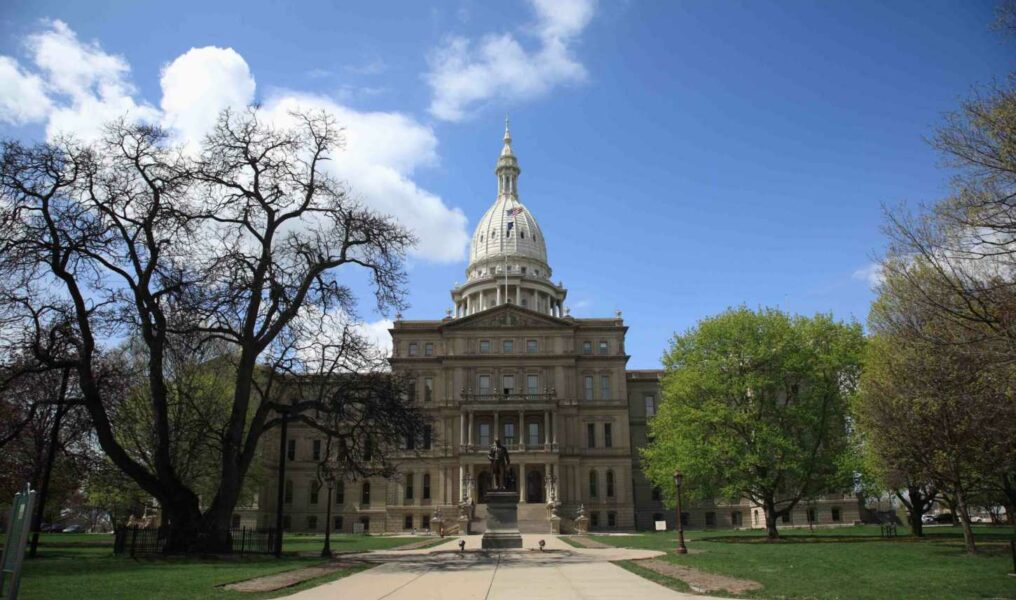We are organizations across the State of Michigan that serve members of the LGBTQ+ community and we write this statement in opposition to the so-called "Secure Michigan Vote" petition drive. We believe that such initiative, instead of making voting in Michigan more secure, suppresses voter participation and disenfranchises already marginalized communities in our State. We urge residents of Michigan to decline to sign this petition for the following reasons:
Voting rights is an LGBTQ issue. The right to vote is the cornerstone of our democracy and the fundamental right upon which all our civil liberties arise. Voter suppression tactics are often used to silence some of the most vulnerable members of our LGBTQ+ community, most notably transgender people who already have challenges obtaining accurate identity documents to show at their polling place. We have built our fight for equality on the back of free and fair elections. All the pro-LGBTQ+ laws and policies that we have locally, statewide, and nationally were passed because we were able to elect LGBTQ+ allies and LGBTQ+ people to political office. We were allowed to cast our votes for the candidates that we believed in. If we hadn't been allowed to vote, or if voting had been so difficult that we could not participate, it's likely we would not have non-discrimination laws, marriage equality, or hate crime laws protecting our communities.
The LGBTQ+ community is a diverse community with many intersectionalities. People of color and people under 30 are more likely to identify as LGBTQ+. LGBTQ+ people are more likely to be part of the disability community than their heterosexual counterparts. In addition, LGBTQ+ community members are more likely to be lower income and living below the poverty line. In fact, 40 percent of homeless youth served by street outreach and housing programs identify as LGBTQ+. These demographics make LGBTQ+ more vulnerable to voter suppression schemes.
The proposed initiative threatens to make voting more difficult, especially for communities that already experience additional barriers when casting their ballots. These efforts are an anathema to what social change is about.
This petition drive eliminates the ability of voters who are without an ID or forget theirs to cast a ballot if they sign an affidavit, or statement of identity, under penalty of perjury. Instead, they would have to cast a provisional ballot that will only be counted if they return to the local clerk's office with a valid ID within six days of voting.
In the 2016 General Election more than 18,000 voters in Michigan relied on signing an affidavit in order to vote, without any evidence of voter fraud. In a study of the 2016 Election by Dr. Daniel Smith of the University of Florida, half of the affidavit ballots cast in Michigan were done in precincts with disproportionately Black voters. Voters living in 100 percent Black districts were 16 times more likely to sign an affidavit to cast their ballot than voters in precincts with no Black voters. Voters of color were five times more likely to lack access to ID than white voters. In addition, a majority of those voters who signed an affidavit had incomes that would be classified as lower income and below the poverty level. In other words, eliminating the option to vote by signing an affidavit disenfranchises communities of color and lower-income voters at staggering and disproportionate rates.
As Republican Ottawa County Clerk Justin Roebuck was quoted in Bridge Magazine, the state's existing voter ID policy "is a great one, so what is the problem we are trying to solve? There's so little, I mean like none, evidence of voter fraud by impersonation, so that's where I struggle. It will be an inconvenience for our voters."
This anti-voter initiative would require voters requesting absentee ballots to write their state ID number or the last four digits of their social security number on the application. If they fail to do so, they would be provided with a provisional ballot which will not be counted unless they present an ID in person at their clerk's office within six days of the election. Michigan does not currently require an ID or ID number for absentee ballot applications. Instead, clerks match signatures on the application against signatures they have on file for each voter, who previously provided an ID to register to vote.
The initiative also prohibits the Secretary of State, local election officials, or any of their employees from "sending or providing access to" an application for an absentee ballot unless its first requested by a voter. The fact that political parties, special interest groups, and advocacy groups are permitted to send out applications for absentee ballots, is a strong indicator that the proponents behind this initiative are not as interested in possible voter fraud as reducing the number of voters participating in elections.
Having the government initiate the process of voting ensures all voters have equal access to the ballot regardless of party or zip code. It improves participation in our elections and builds trust. Making it more difficult for registered voters to submit an absent voter ballot application will not make the absentee voting process more secure. There are already safeguards in place, and more than 250 audits showed the 2020 Election was secure, to ensure people do not obtain ballots they are not entitled to through signature verification processes and other security features.
The initiative's restrictions on how a Michigan voter may receive an absent voter ballot application raises concerns under the Michigan Constitution. Proposal 3 of 2018, supported by over two-thirds of voters in 2018, granted Michigan voters a constitutional right "to vote an absentee voter ballot without giving a reason," and requires that the provision's text "be liberally construed in favor of voters' rights in order to effectuate its purposes." The Michigan Court of Appeals agreed last year that proactively providing absent voter applications to registered Michigan voters is consistent with the Secretary of State's "constitutional obligation" to effectuate the Constitution's purpose.
The initiative bars state and local election clerks from accepting any private money, including grants or in-kind donations from outside groups to help them conduct elections. Election officials can only use funds that are available and appropriated by the State government for all election related matters, including equipment purchases, voter registration and informational mail about elections.
The effects of this provision which may be the most dangerous and damaging of the initiative, is that it will surely undermine the ability of election officials to administer elections and serve the needs of voters. Under this provision the following would be prohibited:
- Federal government election funding to cities and townships
- Places of worship, nursing homes and extended stay homes donating space for polling places
- Clerks applying for grants to fund absentee ballot drop boxes and needed technology upgrades
- The loaning of personnel and equipment between communities
- The ability of citizens to volunteer their time to assist with the election
Such restrictions will surely impact the ability of resource-challenged local governments to provide efficient and reliable access to voting, including maintaining the availability of secure ballot drop boxes. And there are many people in the LGBTQ+ community who have to wait in line several hours to vote.
Additionally, if the anti-voter group collects 340,000 valid signatures for this petition drive, the measure will go directly to the legislature where a majority of lawmakers can vote it into law without it going to the ballot and without the voters' say — and Governor Gretchen Whitmer would not be able to use her veto power. This is a shady tactic we've seen used before on controversial ballot initiatives passed by the legislature.
This ballot initiative is being pushed by the same people who fostered doubts in the last election, by stoking the "Big Lie." Republicans in the Michigan Senate in their 54-page investigation into the 2020 Election released earlier this year, declared that lies about 2020 election fraud were unfounded.
United and together, we encourage members of the LGBTQ+ community and our allies to decline to sign and to resist this anti-voter effort that attempts to undo all the progress that Michiganders have made to modernize our elections so that every eligible voter can cast their vote. The progress we have made on LGBTQ rights depends on the ability of every eligible member of our community to have their voice heard at the ballot box.
Signed by:
American Civil Liberties Union of Michigan, Affirmations Community Center, Corktown Health Center, Equality Michigan, Gender Identity Network Alliance, Human Rights Campaign, Inclusive Justice, LGBT Community Council, LGBT Detroit, Michigan Unitarian Universalist, Social Justice Network, Out Center, OutFront Kalamazoo, Pride at Work, SAGE Metro Detroit, Stand with Trans, Trans Sistas of Color, Transcend the Binary











